Questões Militares
Para técnico
Foram encontradas 359 questões
Resolva questões gratuitamente!
Junte-se a mais de 4 milhões de concurseiros!
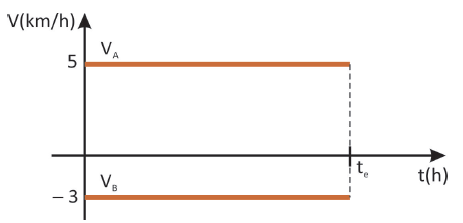
Podemos afirmar que
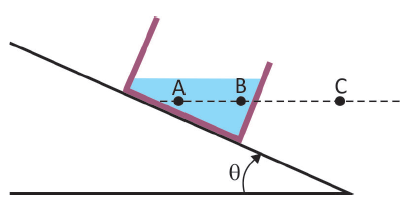
Designando por PA, PB e PC as respectivas pressões nos pontos A, B e C, podemos afirmar que
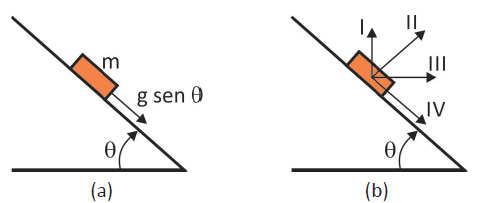
Dentre os segmentos de reta orientados mostrados na figura (b), o único que pode representar corretamente a força resultante exercida sobre o bloco é o segmento
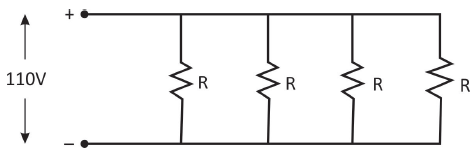
Deseja-se ligar esse aquecedor sob tensão de 220V consumindo a mesma potência P. Nesse caso, os resistores devem ser ligados como mostra o seguinte esquema

A força de atrito exercida pelo bloco maior (de massa M) sobre o bloco menor (de massa m)
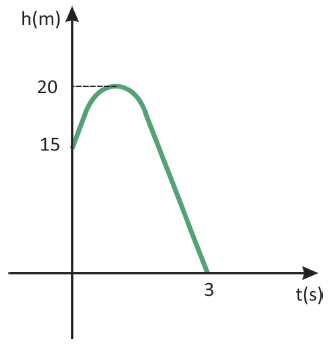
A distância percorrida pela pedra entre o instante em que foi lançada e o instante em que chegou ao solo foi
No circuito abaixo, cada resistência vale 1Ω.
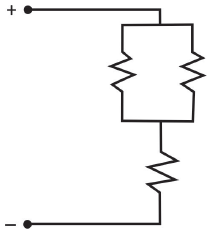
A resistência equivalente é igual a:

A velocidade média da viagem de Agenor foi de:
TEXTO II

After decades of trying to protect rapidly shrinking forests, Brazil has launched a digital platform called BVRio, short for Bolsa Verde do Rio de Janeiro (Rio de Janeiro Green Exchange). Growers who have more untouched forest than legally required can sell “quotas,” one hectare at a time, to farmers who fall short for a price determined by supply and demand. Under the rule, growers have to keep a minimum amount of native growth on their properties, ranging from 20 to 80 percent of their land depending on the type of vegetation. The trading platform, launched in December 2012, allows farmers to find and negotiate directly with each other.
TEXTO II

After decades of trying to protect rapidly shrinking forests, Brazil has launched a digital platform called BVRio, short for Bolsa Verde do Rio de Janeiro (Rio de Janeiro Green Exchange). Growers who have more untouched forest than legally required can sell “quotas,” one hectare at a time, to farmers who fall short for a price determined by supply and demand. Under the rule, growers have to keep a minimum amount of native growth on their properties, ranging from 20 to 80 percent of their land depending on the type of vegetation. The trading platform, launched in December 2012, allows farmers to find and negotiate directly with each other.
TEXTO II

After decades of trying to protect rapidly shrinking forests, Brazil has launched a digital platform called BVRio, short for Bolsa Verde do Rio de Janeiro (Rio de Janeiro Green Exchange). Growers who have more untouched forest than legally required can sell “quotas,” one hectare at a time, to farmers who fall short for a price determined by supply and demand. Under the rule, growers have to keep a minimum amount of native growth on their properties, ranging from 20 to 80 percent of their land depending on the type of vegetation. The trading platform, launched in December 2012, allows farmers to find and negotiate directly with each other.
TEXTO I
‘Brazilian Atlantis’: Scientists discover traces of sunken continent under Atlantic Ocean

Granite formed on dry land has been discovered beneath the ocean off the coast of Brazil. Scientists suggest that it might be part of a sunken continent which disappeared millions of years ago and already branded it ‘Brazilian Atlantis’.
A Japanese-manned submersible discovered a large mass of granite and a large amount of quartz sand 900 miles off the coast of Rio de Janeiro, according to the announcement made by The Japan Agency for Marine-Earth Science and Technology (JAMSTEC) and the Geology Service of Brazil (CPRM).
These materials, normally found on dry land, suggest that a continent once existed in the region and then sank. “It is unusual because it is granite rock,” CPRM geology director Roberto Ventura Santos as quoted by ‘The Telegraph’. “And you don’t find granite on the seabed. It is more usual to find it on the mainland.”
The granite was discovered in a seabed that was estimated to have disappeared under the ocean waters tens of millions of years ago.
“South America and Africa used to be a huge, unified continent. The area in question may have been left in water as the continent was separated in line with the movements of plates,” said Shinichi Kawakami, a professor at Gifu University, Japan Times reports.
The material was reportedly found more than 8,000 feet beneath the sea in a region known as the Rio Grande Elevation.
“This is the region that has been least explored worldwide,” added Kawakami. “So, we believe it is very important to research it.”
“From an analysis, we began to see that the area could be a piece of the continent that disappeared into the sea millions of years ago,” Santos said as quoted by AFP. “This could be Brazil’s Atlantis. We are almost certain, but we need to strengthen this hypothesis.”
The fabled island was first mentioned by Greek philosopher Plato in his dialogues ‘Timaeus’ and ‘Critias’, written about 360 BC. According to Plato, Atlantis was situated in front of the Pillars of Hercules, the phrase that was applied in Antiquity to the promontories that flank the entrance to the Strait of Gibraltar. The civilization of Atlantis conquered many parts of Western Europe and Africa approximately 9600 BC. But the continent is believed to have sunk during a catastrophic natural disaster.
Scientists plan to drill for more samples later this year, as further confirmation is needed. Experts still remain cautious about jumping to conclusions.
http://rt.com/news/brazil-altantis-scientists-granite-012/)
TEXTO I
‘Brazilian Atlantis’: Scientists discover traces of sunken continent under Atlantic Ocean

Granite formed on dry land has been discovered beneath the ocean off the coast of Brazil. Scientists suggest that it might be part of a sunken continent which disappeared millions of years ago and already branded it ‘Brazilian Atlantis’.
A Japanese-manned submersible discovered a large mass of granite and a large amount of quartz sand 900 miles off the coast of Rio de Janeiro, according to the announcement made by The Japan Agency for Marine-Earth Science and Technology (JAMSTEC) and the Geology Service of Brazil (CPRM).
These materials, normally found on dry land, suggest that a continent once existed in the region and then sank. “It is unusual because it is granite rock,” CPRM geology director Roberto Ventura Santos as quoted by ‘The Telegraph’. “And you don’t find granite on the seabed. It is more usual to find it on the mainland.”
The granite was discovered in a seabed that was estimated to have disappeared under the ocean waters tens of millions of years ago.
“South America and Africa used to be a huge, unified continent. The area in question may have been left in water as the continent was separated in line with the movements of plates,” said Shinichi Kawakami, a professor at Gifu University, Japan Times reports.
The material was reportedly found more than 8,000 feet beneath the sea in a region known as the Rio Grande Elevation.
“This is the region that has been least explored worldwide,” added Kawakami. “So, we believe it is very important to research it.”
“From an analysis, we began to see that the area could be a piece of the continent that disappeared into the sea millions of years ago,” Santos said as quoted by AFP. “This could be Brazil’s Atlantis. We are almost certain, but we need to strengthen this hypothesis.”
The fabled island was first mentioned by Greek philosopher Plato in his dialogues ‘Timaeus’ and ‘Critias’, written about 360 BC. According to Plato, Atlantis was situated in front of the Pillars of Hercules, the phrase that was applied in Antiquity to the promontories that flank the entrance to the Strait of Gibraltar. The civilization of Atlantis conquered many parts of Western Europe and Africa approximately 9600 BC. But the continent is believed to have sunk during a catastrophic natural disaster.
Scientists plan to drill for more samples later this year, as further confirmation is needed. Experts still remain cautious about jumping to conclusions.
http://rt.com/news/brazil-altantis-scientists-granite-012/)
TEXTO I
‘Brazilian Atlantis’: Scientists discover traces of sunken continent under Atlantic Ocean

Granite formed on dry land has been discovered beneath the ocean off the coast of Brazil. Scientists suggest that it might be part of a sunken continent which disappeared millions of years ago and already branded it ‘Brazilian Atlantis’.
A Japanese-manned submersible discovered a large mass of granite and a large amount of quartz sand 900 miles off the coast of Rio de Janeiro, according to the announcement made by The Japan Agency for Marine-Earth Science and Technology (JAMSTEC) and the Geology Service of Brazil (CPRM).
These materials, normally found on dry land, suggest that a continent once existed in the region and then sank. “It is unusual because it is granite rock,” CPRM geology director Roberto Ventura Santos as quoted by ‘The Telegraph’. “And you don’t find granite on the seabed. It is more usual to find it on the mainland.”
The granite was discovered in a seabed that was estimated to have disappeared under the ocean waters tens of millions of years ago.
“South America and Africa used to be a huge, unified continent. The area in question may have been left in water as the continent was separated in line with the movements of plates,” said Shinichi Kawakami, a professor at Gifu University, Japan Times reports.
The material was reportedly found more than 8,000 feet beneath the sea in a region known as the Rio Grande Elevation.
“This is the region that has been least explored worldwide,” added Kawakami. “So, we believe it is very important to research it.”
“From an analysis, we began to see that the area could be a piece of the continent that disappeared into the sea millions of years ago,” Santos said as quoted by AFP. “This could be Brazil’s Atlantis. We are almost certain, but we need to strengthen this hypothesis.”
The fabled island was first mentioned by Greek philosopher Plato in his dialogues ‘Timaeus’ and ‘Critias’, written about 360 BC. According to Plato, Atlantis was situated in front of the Pillars of Hercules, the phrase that was applied in Antiquity to the promontories that flank the entrance to the Strait of Gibraltar. The civilization of Atlantis conquered many parts of Western Europe and Africa approximately 9600 BC. But the continent is believed to have sunk during a catastrophic natural disaster.
Scientists plan to drill for more samples later this year, as further confirmation is needed. Experts still remain cautious about jumping to conclusions.
http://rt.com/news/brazil-altantis-scientists-granite-012/)
Com relação ao texto, assinale V para a afirmativa verdadeira e F para a falsa.
I - A pedra foi detectada por um avião. II - O granito deve ter pertencido à Atlântida. III - A primeira referência à Atlântida é bem recente.As afirmativas I, II e III são respectivamente
TEXTO I
‘Brazilian Atlantis’: Scientists discover traces of sunken continent under Atlantic Ocean

Granite formed on dry land has been discovered beneath the ocean off the coast of Brazil. Scientists suggest that it might be part of a sunken continent which disappeared millions of years ago and already branded it ‘Brazilian Atlantis’.
A Japanese-manned submersible discovered a large mass of granite and a large amount of quartz sand 900 miles off the coast of Rio de Janeiro, according to the announcement made by The Japan Agency for Marine-Earth Science and Technology (JAMSTEC) and the Geology Service of Brazil (CPRM).
These materials, normally found on dry land, suggest that a continent once existed in the region and then sank. “It is unusual because it is granite rock,” CPRM geology director Roberto Ventura Santos as quoted by ‘The Telegraph’. “And you don’t find granite on the seabed. It is more usual to find it on the mainland.”
The granite was discovered in a seabed that was estimated to have disappeared under the ocean waters tens of millions of years ago.
“South America and Africa used to be a huge, unified continent. The area in question may have been left in water as the continent was separated in line with the movements of plates,” said Shinichi Kawakami, a professor at Gifu University, Japan Times reports.
The material was reportedly found more than 8,000 feet beneath the sea in a region known as the Rio Grande Elevation.
“This is the region that has been least explored worldwide,” added Kawakami. “So, we believe it is very important to research it.”
“From an analysis, we began to see that the area could be a piece of the continent that disappeared into the sea millions of years ago,” Santos said as quoted by AFP. “This could be Brazil’s Atlantis. We are almost certain, but we need to strengthen this hypothesis.”
The fabled island was first mentioned by Greek philosopher Plato in his dialogues ‘Timaeus’ and ‘Critias’, written about 360 BC. According to Plato, Atlantis was situated in front of the Pillars of Hercules, the phrase that was applied in Antiquity to the promontories that flank the entrance to the Strait of Gibraltar. The civilization of Atlantis conquered many parts of Western Europe and Africa approximately 9600 BC. But the continent is believed to have sunk during a catastrophic natural disaster.
Scientists plan to drill for more samples later this year, as further confirmation is needed. Experts still remain cautious about jumping to conclusions.
http://rt.com/news/brazil-altantis-scientists-granite-012/)
TEXTO I
‘Brazilian Atlantis’: Scientists discover traces of sunken continent under Atlantic Ocean

Granite formed on dry land has been discovered beneath the ocean off the coast of Brazil. Scientists suggest that it might be part of a sunken continent which disappeared millions of years ago and already branded it ‘Brazilian Atlantis’.
A Japanese-manned submersible discovered a large mass of granite and a large amount of quartz sand 900 miles off the coast of Rio de Janeiro, according to the announcement made by The Japan Agency for Marine-Earth Science and Technology (JAMSTEC) and the Geology Service of Brazil (CPRM).
These materials, normally found on dry land, suggest that a continent once existed in the region and then sank. “It is unusual because it is granite rock,” CPRM geology director Roberto Ventura Santos as quoted by ‘The Telegraph’. “And you don’t find granite on the seabed. It is more usual to find it on the mainland.”
The granite was discovered in a seabed that was estimated to have disappeared under the ocean waters tens of millions of years ago.
“South America and Africa used to be a huge, unified continent. The area in question may have been left in water as the continent was separated in line with the movements of plates,” said Shinichi Kawakami, a professor at Gifu University, Japan Times reports.
The material was reportedly found more than 8,000 feet beneath the sea in a region known as the Rio Grande Elevation.
“This is the region that has been least explored worldwide,” added Kawakami. “So, we believe it is very important to research it.”
“From an analysis, we began to see that the area could be a piece of the continent that disappeared into the sea millions of years ago,” Santos said as quoted by AFP. “This could be Brazil’s Atlantis. We are almost certain, but we need to strengthen this hypothesis.”
The fabled island was first mentioned by Greek philosopher Plato in his dialogues ‘Timaeus’ and ‘Critias’, written about 360 BC. According to Plato, Atlantis was situated in front of the Pillars of Hercules, the phrase that was applied in Antiquity to the promontories that flank the entrance to the Strait of Gibraltar. The civilization of Atlantis conquered many parts of Western Europe and Africa approximately 9600 BC. But the continent is believed to have sunk during a catastrophic natural disaster.
Scientists plan to drill for more samples later this year, as further confirmation is needed. Experts still remain cautious about jumping to conclusions.
http://rt.com/news/brazil-altantis-scientists-granite-012/)